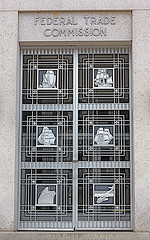 In June, word got out that the U.S. Federal Trade Commission (FTC) planned to ramp up its investigation into Google’s position as the biggest and most powerful search engine. On Monday, the leaders of the Senate antitrust subcommittee delivered the results of their ongoing investigation to the FTC, and the results don’t look great for Google.
In June, word got out that the U.S. Federal Trade Commission (FTC) planned to ramp up its investigation into Google’s position as the biggest and most powerful search engine. On Monday, the leaders of the Senate antitrust subcommittee delivered the results of their ongoing investigation to the FTC, and the results don’t look great for Google.
Of course, common sense tells you that it’s highly unlikely Google can deliver unbiased search results when its entire business strategy in recent years has been to try to make people Google-dependent by surrounding them with integrated products. The launch of the +1 button and Google+ don’t help Google’s case at all.
The subcommittee said as much in its letter to the FTC:
“Google has a strong incentive to bias its search results in favor of its own offerings. Rather than act as an honest broker of unbiased search results, Google’s search results appear to favor the company’s own web products and services.”
You can read the full letter to the FTC here.
Google’s response was exactly what you’d expect. The company spokesperson glossed over the importance of the investigation by saying people have a choice in the search engine they use and Google is “committed to competing fairly on the Internet’s level playing field.”
This story is far from over, and it’s a very important one. The results of the investigation could be widespread in the United States and around the world. Earlier this month, the Financial Times reported that the European Commission is expected to release a 400-page document detailing its own antitrust allegations against Google in early 2012.
The problem that the U.S. Senate subcommittee and the FTC have with Google is not its dominance in Web search. The problem is in Google’s possible use of its position as market leader to drive people who use its search tool to its own products and services rather than providing unbiased results that put all websites and competitors through the same ranking criteria and on a level competitive playing field. Doing so without clearly disclosing it would be a violation of antitrust laws. Antitrust laws are intended to protect the free market by prohibiting anti-competitive behaviors and business practices for the benefit of consumers.
What do you think about these investigations against Google? Agree? Disagree? Leave a comment and share your thoughts about the company and brand that has become a household word for Internet search and allegations of antitrust law violations.
Image: Flickr
Susan Gunelius is the author of 10 marketing, social media, branding, copywriting, and technology books, and she is President & CEO of KeySplash Creative, Inc., a marketing communications company. She also owns Women on Business, an award-wining blog for business women. She is a featured columnist for Entrepreneur.com and Forbes.com, and her marketing-related articles have appeared on websites such as MSNBC.com, BusinessWeek.com, TodayShow.com, and more.
She has over 20 years of experience in the marketing field having spent the first decade of her career directing marketing programs for some of the largest companies in the world, including divisions of AT&T and HSBC. Today, her clients include large and small companies around the world and household brands like Citigroup, Cox Communications, Intuit, and more. Susan is frequently interviewed about marketing and branding by television, radio, print, and online media organizations, and she speaks about these topics at events around the world. You can connect with her on Twitter, Facebook, LinkedIn, or Google+.


